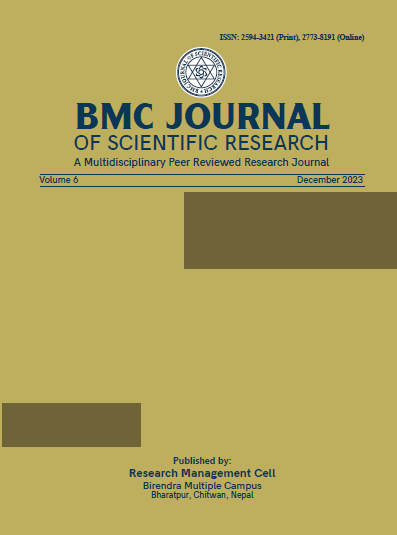Gender Based Knowledge on the Reservation System in Nepal
DOI:
https://doi.org/10.3126/bmcjsr.v6i1.60964Keywords:
Awareness, democracy, reservation system, parameter estimates, moderate variationAbstract
The reservation system encourages equity under the law, which upholds the rights and duties of impoverished populations, making it a democratic decision. However, public awareness is essential for effectively implementing and exercising the reservation system. So, this study analyses the relationship between gender and knowledge of a reservation system using data from the Social Inclusion Survey conducted by Nepal Government in 2020. The author used SPSS software and conducted parametric and non-parametric tests, including Chi-square and binary logistic regression. Through this analysis, it is found that there is a close relationship between gender and knowledge of the reservation system because the p-value of the Chi-Square test is 0.00. Nevertheless, the logistic regression result proved that people have moderate knowledge of the reservation system and suggested that education and training initiatives are needed to improve people's awareness of the reservation system.
Downloads
Downloads
Published
How to Cite
Issue
Section
License
Copyright (c) 2023 Research Management Cell, Birendra Multiple Campus

This work is licensed under a Creative Commons Attribution-NonCommercial-ShareAlike 4.0 International License.




